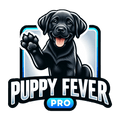737-215-3211

Tips for Managing Your Puppy's Teething Phase
Bringing home a new puppy is an exciting time filled with cute moments and new experiences. However, like human babies, puppies go through a teething phase that can be challenging for both the pet and the owner. This guide will provide you with essential tips for managing your puppy's teething phase.
Understanding Your Puppy's Teething Phase
Signs of Teething in Puppies
Teething in puppies is not always obvious. However, some signs can indicate your puppy is in this stage. These signs include excessive drooling, a desire to chew on anything and everything, swollen or red gums, and a noticeable decrease in appetite.
The Timeline of Puppy Teething
Puppy teething typically begins around three weeks of age and can last until they are about six months old. During this time, your puppy will lose their baby teeth and grow their permanent set.
Essential Tips for Managing Puppy Teething
Provide Appropriate Chew Toys
One of the best ways to manage your puppy's teething phase is by providing plenty of appropriate chew toys. These toys will satisfy your puppy's instinct to chew and soothe their sore gums.
Maintain Proper Dental Hygiene
Regularly checking your puppy's teeth and gums can help you stay on top of any potential issues. Brushing their teeth regularly can also help keep their mouth healthy and clean during the teething phase.
Keep Them Distracted
Keeping your puppy occupied with various activities can help distract them from the discomfort of teething. Training sessions, playtime, and walks can all help keep your puppy's mind off their sore gums.
Offer Cold Treats
Just as cold items can soothe a human baby's teething discomfort, they can help a puppy too. Offering your puppy cold treats or freezing their chew toys can provide much-needed relief.
Maintain a Balanced Diet
Providing a balanced diet is crucial during this phase. The right nutrients will ensure that your puppy's teeth develop correctly and their gums stay healthy.
Do's and Don'ts During Puppy Teething
What to Do
Ensure your puppy has a variety of chew toys, check their mouth regularly for any signs of infection, and be patient with them. It's a painful process, and they'll need your understanding and support.
What Not to Do
Avoid scolding your puppy for chewing on inappropriate items. Instead, redirect them to their chew toys. Never pull a loose tooth out, as it could lead to infection or damage to the developing adult tooth.
When to Consult a Vet
While teething is a normal part of puppy development, sometimes complications can arise. If your puppy shows signs of severe discomfort, extreme loss of appetite, or other unusual symptoms, it's time to consult with a vet.
Managing your puppy's teething phase can be a challenging task, but with patience and understanding, it's entirely manageable. By providing the right chew toys, maintaining proper dental hygiene, offering distractions, and ensuring a balanced diet, you can help your puppy navigate this uncomfortable phase with ease. Remember, it's essential to monitor your puppy's teething and seek veterinary advice when in doubt.
Frequently Asked Questions (FAQs)
When does teething start in puppies? Teething typically begins around three weeks of age and can last until the puppy is about six months old.
How can I soothe my teething puppy's gums? Providing chew toys and cold treats can soothe a teething puppy's gums. Regular play and distraction also help.
How often should I check my puppy's teeth during the teething phase? It's advisable to check your puppy's teeth and gums regularly, ideally every week, to ensure there are no complications.
My puppy is not eating properly. Is this normal during teething? A decrease in appetite can be a sign of teething. However, if it's extreme or prolonged, you should consult with a vet.
Can I pull out my puppy's loose tooth? No, you should never pull out a puppy's loose tooth. It can lead to infection or damage the developing adult tooth.




Leave a comment